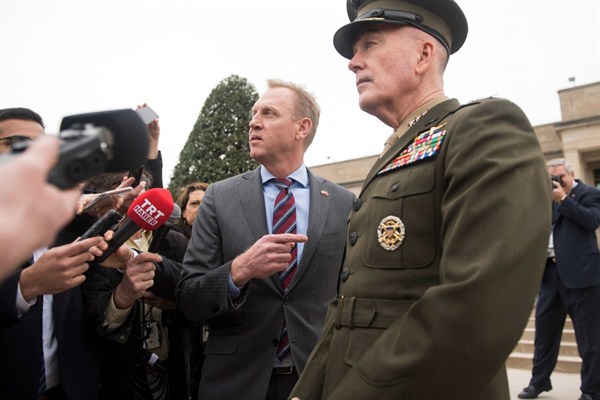During the first two years of the Trump administration, the Department of Defense has curtailed the release of public information about its spending and operations overseas, as reporters have complained of declining access to senior leaders. In an interview with WPR, Mandy Smithberger, director of the Center for Defense Information at the Project on Government Oversight, explains how increasing secrecy at the Pentagon undermines democratic accountability and impairs national security policy.
World Politics Review: How do the Defense Department’s transparency and reporting practices under President Trump compare with those of previous administrations?
Mandy Smithberger: Each administration seems to increase secrecy, partly as a result of efforts that have little to do with who is in the White House. For example, the Pentagon has unsuccessfully tried for several years to exempt itself from provisions of the Freedom of Information Act. But the Trump administration is setting a new low in this regard. Soon after taking office, then-Defense Secretary James Mattis rolled back public access to basic information about American wars, such as the number of troops deployed overseas. This change in policy has no apparent benefit other than to pursue secrecy for the sake of secrecy. The Trump administration has also moved to withhold information on airstrikes in Afghanistan and issued new guidance designed to obfuscate spending information. In a disturbing sign of what is yet to come, Trump last month urged acting Defense Secretary Patrick Shanahan to withhold government watchdog reports from the public. The Pentagon has also constrained interactions with the press, particularly avoiding on-camera briefings.

